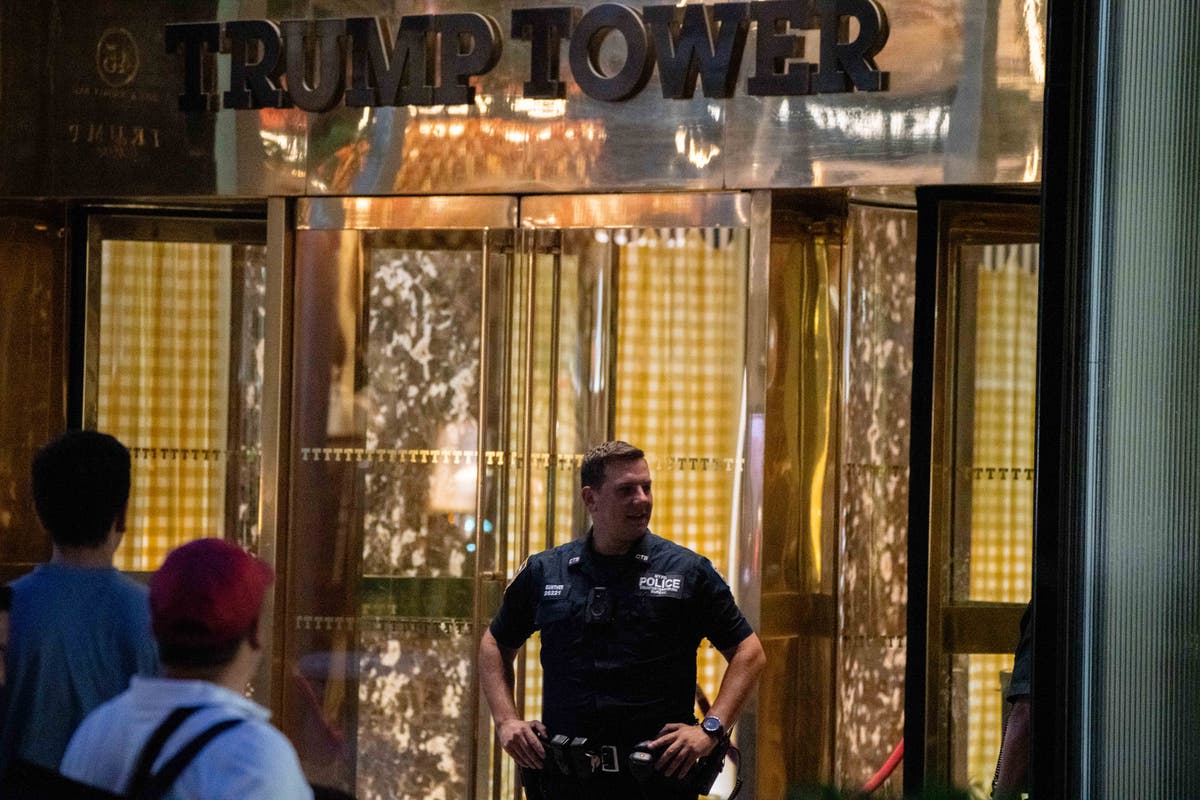Sixties Fan
Diamond Member
- Mar 6, 2017
- 67,610
- 12,087
- 2,290
- Thread starter
- #1,601
Follow along with the video below to see how to install our site as a web app on your home screen.
Note: This feature may not be available in some browsers.

/———/It took the 11th Circuit nine days and 21 pages to reject the former president’s most unusual suggestion that a federal district judge could interfere with the government’s criminal investigation into the classified documents he kept at Mar-a-Lago. I’ll do a quick read through of the opinion for you, that will probably be more lengthy than if I took time to distill it as we usually do, but let’s get a hot take on this breaking news today.
If you’d like to read it yourself, it should be on the 11th Circuit’s homepageunder today’s published opinions shortly. I’ve pulled it off of Pacer to read, as it doesn’t seem to have quite made its way there yet.
There are no surprises here. If you’ve kept up with my posts, it’s as expected. The Court delivers a resounding loss to Trump.
Just as we discussed earlier, the 11th Circuit concluded it lacked jurisdiction to hear this unusual appeal at all. In the opinion, the judges wrote: “In considering these arguments, we are faced with a choice: apply our usual test; drastically expand the availability of equitable jurisdiction for every subject of a search warrant; or carve out an unprecedented exception in our law for former presidents. We choose the first option. So the case must be dismissed.” Just like that, Trump is out of court. Judge Cannon’s orders are vacated; in order words, the 11th Circuit canceled the way she handled Trump’s case.
It’s worth noting the math in the opinion. The Court notes that the FBI found 184 documents of various classification levels including 25 marked top secret when the FBI was finally able to access document in the National Archives position after Trump engaged in months of delay. That was in May of this year. DOJ subpoenaed Trump for the remainder of the documents the had developed evidence to believe were in his possession that same month and, without claiming anything in his possession was privileged or that he’d declassified it, Trump’s lawyers produced an additional 38 documents, 17 of which were marked top secret, along with their declaration they’d conducted a diligent search and produced all documents called for by the subpoena.
That all happened before DOJ properly obtained a search warrant for Mar-a-Lago. The 11th Circuit notes that despite Trump’s certification, “fifteen of the thirty-three seized…containers…contained documents with classification marking, including three found in desks in Plaintiff’s office. All told, the search uncovered over one hundred documents marked confidential, secret, or top secret.”
With no additional commentary, the 11th Circuit exposes the extraordinary number of classified documents found in Trump’s possession and gives Trump no excuses. They lay out the crimes that DOJ is presumably, through the office of the new special counsel, getting ready to indict him for.
Nor do they have much trouble dismissing Judge Cannon’s decision that she had jurisdiction to hear the civil lawsuit Trump filed to try to get around the search warrant. We’ve already discussed the law in this regard—that the equitable jurisdiction Judge Cannon decided she had is meant to be rarely and carefully exercised. The 11th Circuit reviews that before concluding that “the district court lacked jurisdiction to consider” Trump’s case.
That’s the case because Trump failed to show “callous disregard” for his constitutional rights. Although there is a test, the Richey test the 11th Circuit uses to decide when it has equitable jurisdiction, none of the other factors matter if you don’t have callous disregard. The Court says, “the callous disregard standard has not been met here, and no one argues otherwise.”
This is the judicial equivalent of saying, you had only one job.
In a rather painful dismantling of Cannon and Trump’s lawyers, the Court points out that the read the law wrong, badly wrong, in an effort to serve Trump. In fact, the Court notes that even Trump’s lawyers don’t use the badly wrong theory Judge Cannon used to decide she had jurisdiction over the matter, instead they try to skip over proof of callous disregard, which is essential for the district court to hear the case, and rely on the Presidential Records Act to show an additional factor, that Trump has an interest in the items the government seized. Trump seems to think the Act gives him some kind of special status. The Court concludes it does not. And it doesn’t matter, because this factor alone, in the absence of any evidence Trump’s Constitutional rights were violated, isn’t enough for Judge Cannon to hear the case.
Here’s an example of how acerbic the opinion is on this point: “Even if Plaintiff’s statutory interpretation were correct (a proposition that we neither consider nor endorse), personal interest in or ownership of a seized document is not synonymous with the need for its return.” While this might not seem like a lot given today’s public square, the 11th Circuit continues to be a court that values politeness and collegiality. In oral argument, Judges will often ask a lawyer to respond to “the argument your brother (or sister) counsel made.” So rejecting an argument as not even meriting consideration is out of the ordinary. And the Court goes out of its way in a footnote to state the obvious, that even personal items (Trump complained about golf shirts and pictures of Celine Dion) obtained during a “presumptively lawful search warrant” needn’t be returned at this point. The dismantling of Trump’s arguments, in a way that mercilessly points out how badly wrong they get the law, continues on this point with the Court concluding that Trump’s “task was to show why he needed the documents, not why the government did not. He has failed to meet his burden under this factor.” Even if this factor had been enough to support what Judge Cannon did, Trump still failed to prove it.
The 11th Circuit is similarly dismissive of Trump’s argument on another of the Richey factors, whether Trump would be irreparably injured if the property isn’t returned. “No doubt the threat of prosecution can weigh heavily on the mind of anyone under investigation,” the Court writes. “But without diminishing the seriousness of the burden, that ordinary experience cannot support extraordinary jurisdiction.” Sorry, Trump.
The final Richey factor involves determining whether Trump would have an adequate remedy at law to address his grievance if Judge Cannon can’t hear his case. “There is no record evidence that the government exceeded the scope of the warrant—which, it bears repeating, was authorized by a magistrate judge’s finding of probable cause.” The panel is practically yelling in exasperation here when it underlines the whole search was authorized by the judge who signed the search warrant.
There’s another line of reasoning that animates all of the Courts arguments across the Richey factors and it’s that none of the arguments Trump makes apply only to him. In fact, there Court notes they “would apply universally; presumably any subject of a search warrant would like all of his property back before the government has a chance to use it.” Trump is trying to get special treatment; a special pass anyone under criminal investigation would like to have. And he wants it only for himself, without any reason or logic to support that. In other words, Trump wants what he always wants, to be above the law.
The Court’s exasperation continues as they consider Trump’s argument that he’s entitled to a special master, what the Court calls Trump’s “alternative framing of his grievance.” Here to, they reject his argument, suggesting that if the documents are relevant in a future proceeding, i.e. post-indictment, although they don’t come out and say it, Trump can get a remedy then.
But the Court makes clear that considering these three additional factors is just a sideshow if no one has violated Trump’s rights. In fact, that’s exactly how they say it: “All these arguments are a sideshow. The real question that guides our analysis is this—adequate remedy for what? The answer is the same as it was in Chapman: ‘No weight can be assigned to this factor because [Plaintiff] did not assert that any rights had been violated, i.e., that there has been a callous disregard for his constitutional rights or that a substantial interest in property is jeopardized’…If there has been no constitutional violation—much less a serious one—then there is no harm to be remediated in the first place.
That’s the first 19 pages of the opinion. Then the Court reaches its conclusion. They reject Trump’s plea because, if they didn’t, the special rule he wants the Court to apply to him would apply in all cases. And it would become virtually impossible for prosecutors to conduct their work. “Anyone could make these arguments.”
So, the Court writes, there’s only one possible justification left. Trump wants a special rule for former presidents. Here, you need to read the Court’s words. They say what should have been said to Trump long ago:
“Only one possible justification for equitable jurisdiction remains: that Plaintiff is a former President of the United States. It is indeed extraordinary for a warrant to be executed at the home of a former president—but not in a way that affects our legal analysis or otherwise gives the judiciary license to interfere in an ongoing investigation. The Richey test has been in place for nearly fifty years; its limits apply no matter who the government is investigating. To create a special exception here would defy our Nation’s foundational principle that our law applies ‘to all, without regard to numbers, wealth, or rank.’
The law is clear. We cannot write a rule that allows any subject of a search warrant to block government investigations after the execution of the warrant. Nor can we write a rule that allows only former presidents to do so. Either approach would be a radical reordering of our caselaw limiting the federal courts’ involvement in criminal investigations. And both would violate bedrock separation-of-powers limitations. Accordingly, we agree with the government that the district court improperly exercised equitable jurisdiction, and that dismissal of the entire proceeding is required.”
So, it’s all over. The government can investigate Trump just like any other person. Will Trump appeal? Of course, he’s try to. But it’s over. The rule of law has spoken through a panel of three Republican-appointed judges.
Forgive any typos, I wanted to get this to you all quickly so you could be up to date on this really encouraging development for people who care about democracy and accountability.

11th Circuit to Trump: You’re Not Above the Law!
It took the 11th Circuit nine days and 21 pages to reject the former president’s most unusual suggestion that a federal district judge could interfere with the government’s criminal investigation into the classified documents he kept at Mar-a-Lago.joycevance.substack.com

